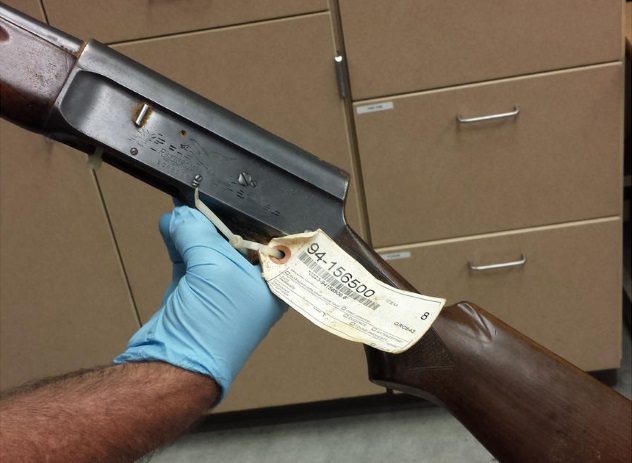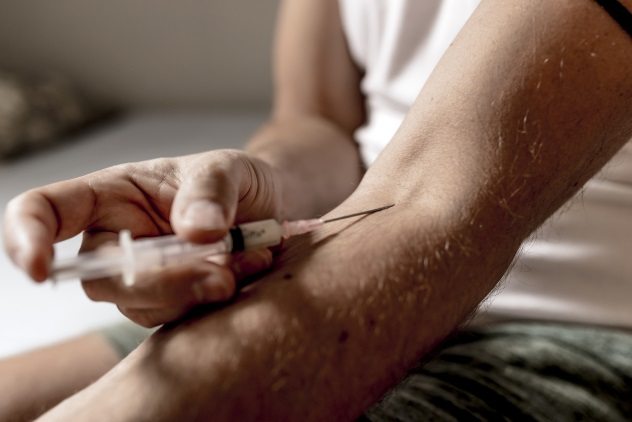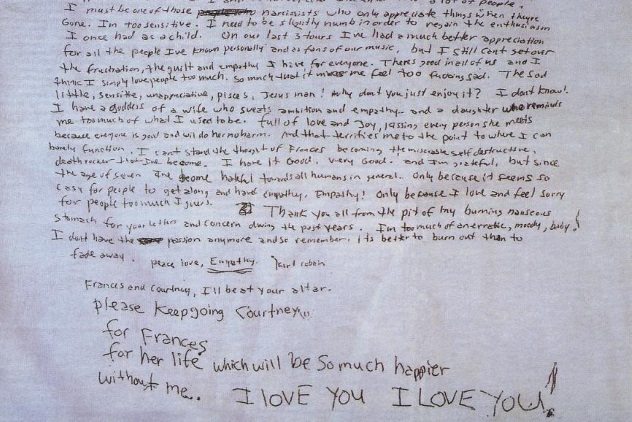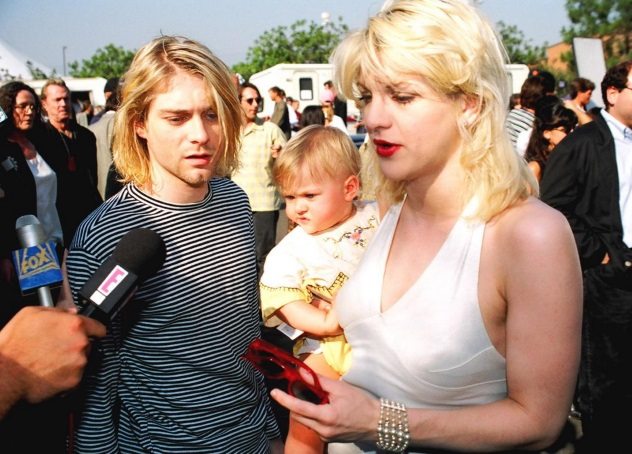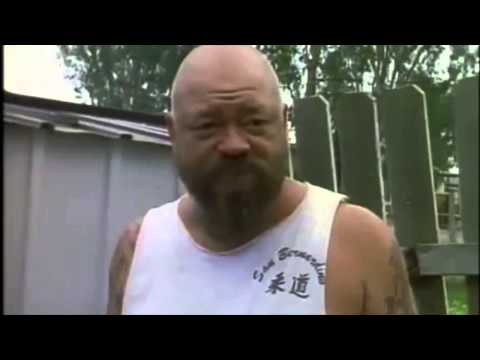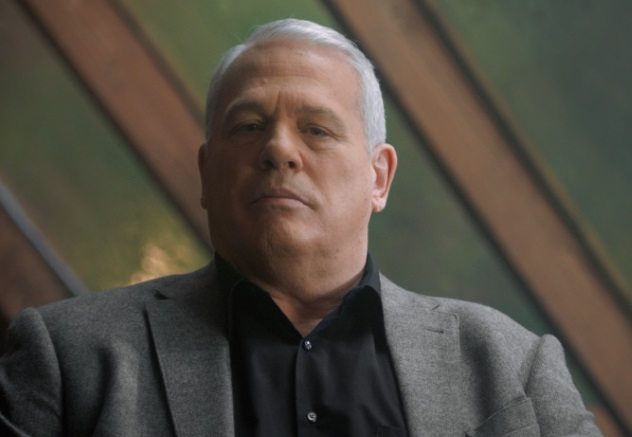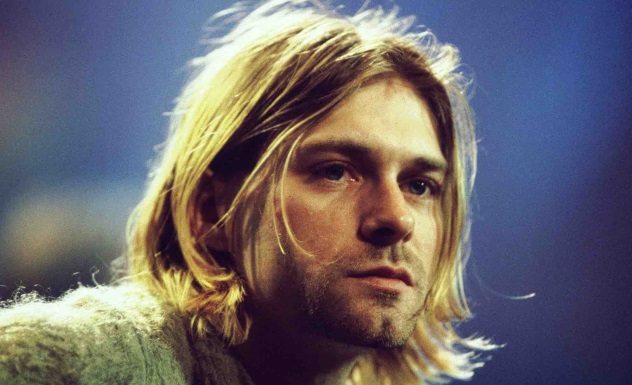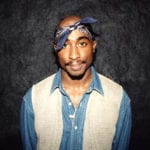However, almost a quarter of a century later, many still question the verdict of suicide. And we’re not just talking about crazed fans and conspiracy theorists who insist Elvis is still alive, either. In the 2015 documentary Soaked In Bleach, former Seattle police chief Norm Stamper expressed significant regret that they didn’t more closely examine key individuals who “had a motive to see Kurt Cobain dead.”
10 No Fingerprints On The Gun
According to investigation records, there were no usable fingerprints recovered from either the shotgun that Kurt allegedly used to end his life or on the shells that had been loaded into it.[1] Given that Kurt was not found wearing gloves, and the gun lay on his lifeless chest with his left hand clasped around it, they should have been present in several places. Furthermore, there wasn’t any hint of gun residue that would have been present on Cobain had he fired the weapon. Perhaps as a further twist, the gun in question was found to have been freshly loaded with three shells. While this is only circumstantial (and admittedly not very convincing), given that the assertion was that Cobain had obtained the shotgun in the immediate run-up to his death in order to kill himself, it was odd that he would load it with three shells instead of just one.
9 Too Much Heroin In His System
It has been argued that not only would the amount of heroin, and Valium to boot, that was found in Cobain’s system likely have left him unable to pull the trigger of a gun, but it would almost certainly have killed him. In his paper “Dead Men Don’t Pull Triggers,” Canadian toxicologist Roger Lewis argued this point passionately, stating it would have “either immediately rendered him incapacitated and in a comatose state or killed him instantly.”[2] Although Lewis stopped short of saying that Cobain was intentionally drugged and murdered, he would stand by his claim that Cobain didn’t pull the trigger on the gun that killed him. Many who dismiss these claims point to the experiments of Dr. Colin Brewer, who, after orally taking up to two times the amount of heroin that Cobain had in his system when he died, was still able to comprehend and even balance on one leg. However, there is a difference in intensity between orally administered doses and injections of “street” heroin. The arguments on this one are strong on either side.
8 The Suicide Note
The suicide note that Kurt left appears to be quite a thought-provoking, well-planned piece of writing. It has been argued by some who have studied it (and many have) that the note doesn’t make any mention of suicide at all until the last four lines. Until then, it speaks mainly of his love for music but no longer having a love of performing it. Many believe the note was actually talking about his intent to leave the band—something which he may have planned to forward to the media in the days that followed (assuming that theory is correct). What makes those last four lines even more interesting is that the handwriting appears to some to be written by someone else. The note has been analyzed by many experts, and the findings seem to be pretty much split down the middle. Some say it is the same handwriting; others are certain that it isn’t and insist that another person added the last four lines after Cobain’s death.[3]
7 Credit Card Used After Death
It is widely agreed that Kurt Cobain likely died on April 5, before the discovery of his body on April 8. What is perhaps strange, then, are the records that show two transactions on Kurt’s credit card on April 6.[4] Some take this as an indication that Kurt’s card was being used after he died. Whoever was using it would have a better understanding of the timeline around his death than most. Others have pointed out that the dates on the credit card statement probably only show when the card was charged, not when the transactions took place. On a possibly related note, a different brand of cigarette than the ones that Cobain smoked were found in the ashtray in the room where his body was discovered. (Cobain’s brand was also in the ashtray.) Whoever may have smoked that other brand of cigarette has never been identified. Could it be someone who used Cobain’s cards—either with his permission or after discovering the body and taking the card by way of opportunism?
6 Cobain’s Lawyer And Claims Of Divorce
Tom Grant is a former detective and private investigator who was originally hired by Cobain’s wife, Courtney Love, on April 3 to find Kurt after he’d left drug rehab two days earlier. According to Grant, his investigation uncovered evidence that Kurt was planning to divorce his wife and that this was the reason he was, in Grant’s opinion, murdered. Grant claimed he had spoken with Cobain’s attorney, Rosemary Carroll, just days after his body was discovered.[5] According to Grant, Carroll had agreed with his theories and urged him to continue his investigation. Furthermore, the private detective claimed that Carroll had confided in him that in the weeks prior to his death, Kurt had her change his will so that Love would be excluded because he was indeed just about to divorce her. While Grant has spoken publicly about this alleged conversation, Carroll herself hasn’t. However, this lack of response is seen by some as Carroll indirectly confirming that the conversation took place, due to her not denying the claims. Furthermore, in the documentary Kurt & Courtney, a former nanny who worked at the Cobain property claimed there was increased talk about divorce from Kurt during phone calls in the weeks leading up to his death.
5 The Claims And Death Of El Duce
One of the strangest incidents surrounding the death of Kurt Cobain was the death of El Duce. The Los Angeles heavy metal musician, whose real name was Eldon Hoke, had claimed to British documentary-maker Nick Broomfield that Love had offered him $50,000 to “blow his [Kurt’s] f—ing head off.”[6] He stated that this conversation had happened outside the Rock Shop in Hollywood. Apparently, the manager of the shop, Karush Sepedjian, had witnessed the exchange between Love and Hoke and would later confirm that what Hoke had said was true. Hoke also took a lie detector test on the matter and passed with a 99.9-percent certainty. Two days after being filmed for Kurt & Courtney, though, he was found dead on the railway track near his home in Los Angeles. His death was ruled as accidental; he had gotten drunk and had wandered onto the track near his home. Needless to say, quite a few eyebrows were raised in certain corners.
4 Tom Grant
The main driving force behind the push to have Cobain’s death reinvestigated is Tom Grant. This is ironic, given that Courtney Love, who Grant would ultimately accuse of having had her husband killed, is the one who initially hired him. During his investigations, including the aforementioned discussion with Cobain’s lawyer, Grant began to strongly suspect Love and has campaigned for years since Cobain’s death for the case to be reopened.[7] While many have accused Grant of simply seeking monetary gain off the back of a case of suicide (and it has to be said that there is plenty of “work” available for a charge concerning his claims), he has continued his campaign at the expense of his reputation, credibility, and, very likely, any further work in his field.
3 Greg Sage
We saw earlier that the suicide note is believed by some to have been about Kurt’s desire to leave his band. According to Wipers guitarist Greg Sage, Cobain had planned to record some acoustic Lead Belly songs on his own that summer with Sage producing.[8] Although his words need to be taken with a pinch of salt, some believe in the following comment, Sage was alluding to how much Kurt Cobain (and in turn, Nirvana) would be worth to the record company should he pass away instead of simply going solo. Sage stated: Well, I can’t really speculate other than what he said to me, which was, he wasn’t at all happy about it, success to him seemed like, I think, a brick wall. There was nowhere else to go but down, it was too artificial for him, and he wasn’t an artificial person at all. He was actually, two weeks after he died, he was supposed to come here and he wanted to record a bunch of Leadbelly covers. It was kind of in secret, because, I mean, people would definitely not allow him to do that. You also have to wonder, he was a billion-dollar industry at the time, and if the industry had any idea at all of him wishing or wanting to get out, they couldn’t have allowed that, you know, in life, because if he was just to get out of the scene, he’d be totally forgotten, but if he was to die, he’d be immortalized.
2 Michael Dewitt And Courtney Love
As we mentioned above, Tom Grant believes Courtney Love to be responsible for the death of Kurt Cobain. Grant also accused the family’s male nanny, Michael Dewitt, of conspiring with Courtney to kill Cobain.[9] Dewitt was hired by Love, who had known him for some time. Although it was ultimately the conversation with Rosemary Carroll that truly set Grant on the path to his eventual conclusion, he noticed increasingly suspicious behavior from the pair almost immediately upon meeting them—particularly from Love. Its an interesting dynamic to an already darkly intriguing case. If Grant is correct, was his hiring by Love an attempt to cover her tracks, only to be outthought by Grant? It should be noted that many are critical of Grant, in particular of his investigation into the Cobain case. However, our last point is worth taking on board.
1 No Legal Action Taken
Perhaps the most damning evidence, at least in terms of the accusation that they were involved in his death, is that Courtney Love and Michael Dewitt, who Grant has accused of actually pulling the trigger no less, have taken no legal action against the man who has persistently accused them of having the rock singer killed.[10] To his credit, Grant stated that this would be the case, claiming that if Love tried to take him to court, the evidence that she was involved would be allowed to unfold before the world. It is an interesting argument to make, and similar to ones that David Icke and other such conspiracy theorists have made to back up some of their more outlandish (and unsubstantiated) claims. Do they have a point? Or are the claims being made simply not worth the time or money to respond to? Read More: Twitter Facebook Me Time For The Mind
